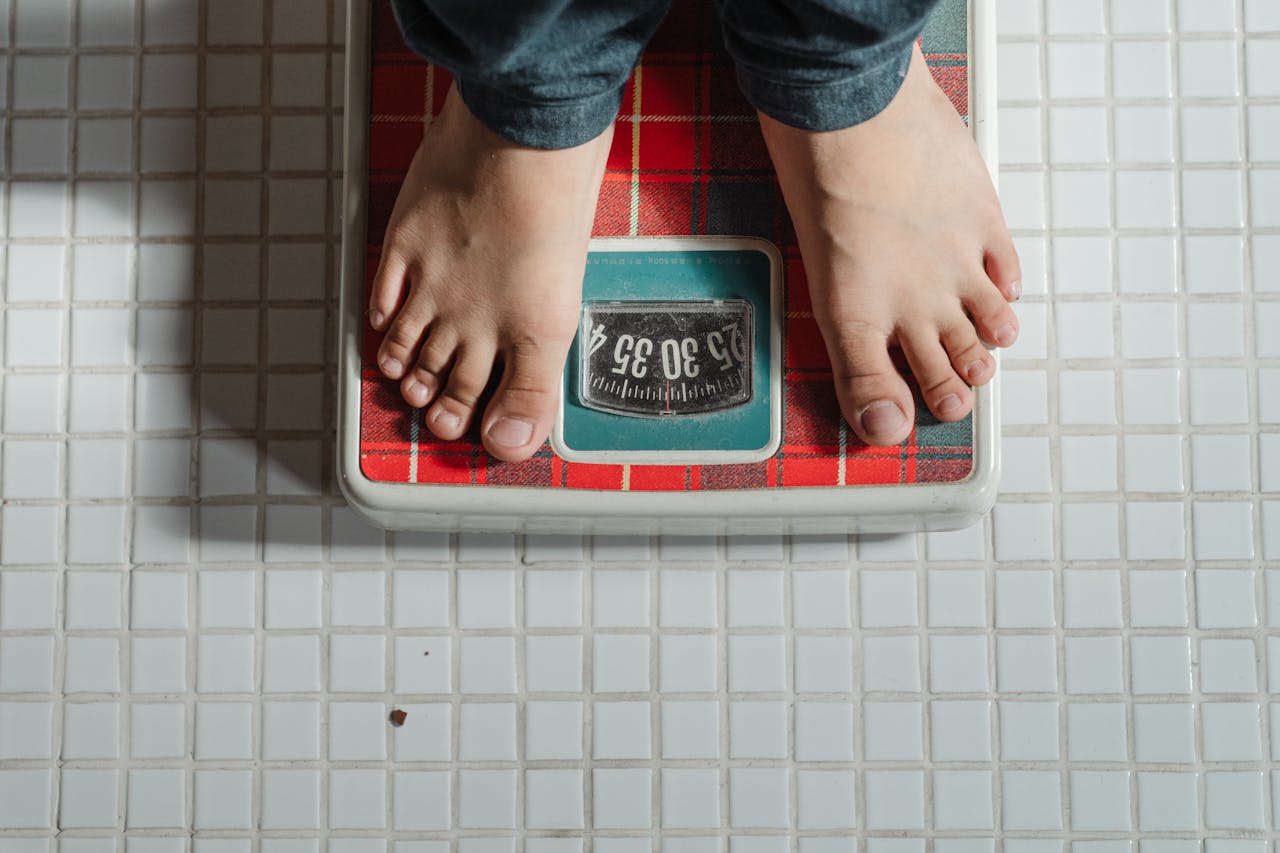Ozempic and other GLP-1 drugs are reshaping food, beauty, alcohol, and belonging. From snack sales to body ideals, marketers are rebranding around the “Ozempic Nation.”

Summer’s Almost Here—and Marketers Want You to Hate Yourself
You made it through April. Barely. Spring is just starting to bloom, but you might have noticed your feeds are already quickly becoming a funhouse mirror of “Get Ready for Summer” panic.
Let’s call it what it is: marketing’s seasonal shame spiral.
It starts in April with a whisper:
Maybe try a detox?
A softer deodorant?
A flirty new swimsuit that somehow demands both body positivity and Olympic-level abs?
And then, like clockwork, it escalates. By the time May hits, it’s no longer a suggestion. It’s a mandate.
Because you, dear consumer, are being lovingly bullied into a summer glow-up—whether you asked for one or not.
The Sexual Panic of Spring
Sex has always been a favorite marketing trick, but come April, it shifts from sultry to surgical. Brands trade the fantasy of attraction for the anxiety of rejection. Suddenly your feed is full of intimate washes and full-body deodorants. Lume promises confidence “down there.” Axe hints that you’ll die alone unless you scrub up with their bro-spray.
This isn’t just marketing hygiene. It’s marketing fear.
Spring campaigns know exactly how to hit that primal nerve: fear of being gross, undesirable, or—God forbid—smelly. And while women have been targeted with this messaging for decades, men are increasingly in the crosshairs. The Dude Grooming Revolution means that everyone now gets a shame-based spritz of deodorant advertising. Equality!
The Food Flip: From Indulgence to Atonement
We spent winter cuddled up with carbs, embracing cozy indulgence. But April swings the pendulum hard in the opposite direction. Now it’s all about wellness, meal prep, and macros. The message? You had your fun. Now it’s time to pay.
This isn’t new. As we covered in the FADS book, the link between food, virtue, and punishment is centuries old. But today, it wears Lululemon and sips collagen water. The modern version of gluttony-shaming is marketed as self-care, wellness, and clean eating. It promises health and healing, but it’s still dangling the same carrot: fix your body to be worthy of summer.
Pharmaceutical Summer: Fix Your Face, Focus, Feelings
In May, drug ads take on a subtle shift. It’s no longer just about symptom relief; it’s about optimization. Clear skin. More energy. Less anxiety.
We’re not just being sold treatment—we’re being sold upgrades. Direct-to-consumer pharmaceutical campaigns ramp up with messages like: Imagine your best self…then take this pill to meet her. And with allergy season offering a convenient cover story, meds for energy, productivity, and even libido sneak into our feeds disguised as helpful springtime hacks.
Patio-Ready Alcohol Culture
Nothing says “you deserve it” like a sparkling wine spritz under a sun-dappled pergola. Alcohol marketing in April/May is all about the lifestyle—cozy outdoor dinners, beachy bar carts, and rosé-fueled joy.
But peel back the #aesthetic and you’ll see something darker: stress, isolation, and the push to make every moment photo-worthy. For women especially, these ads offer a weird paradox: Drink to relax, but also stay hot. Let loose, but also maintain control. Be effortlessly cool, but perfectly composed.
Basically: drink like a goddess, and sweat like a sinner.
The Takeaway: Know the Game Before You Play
As the calendar flips to May, the temperature climbs—and so does the pressure. You’ll be told it’s time to get serious about your looks, your habits, your body. You’ll be nudged, guilted, and shamed into becoming your “best self” just in time for swimsuit season.
But here’s the truth: the marketing machine runs on seasonal anxiety. If you feel a sudden, vague sense of not being good enough this time of year, you’re not imagining it. That’s the game.
Recognize it. Call it out. And decide whether you’re changing something for you, or just performing for the summer algorithm.
Your body doesn’t need a six-week plan. It needs sunscreen.
Happy May.
Your feed has become a funhouse mirror of “Get Ready for Summer” panic. Let’s call it what it is: marketing’s seasonal shame spiral.
It starts in April with a whisper:
Maybe try a detox?
A softer deodorant?
A flirty new swimsuit that somehow demands both body positivity and Olympic-level abs?
And then, like clockwork, it escalates. By the time May hits, it’s no longer a suggestion. It’s a mandate.
Because you, dear consumer, are being lovingly bullied into a summer glow-up—whether you asked for one or not.
The Sexual Panic of Spring
Sex has always been a favorite marketing trick, but come April, it shifts from sultry to surgical. Brands trade the fantasy of attraction for the anxiety of rejection. Suddenly your feed is full of intimate washes and full-body deodorants. Lume promises confidence “down there.” Axe hints that you’ll die alone unless you scrub up with their bro-spray.
This isn’t just marketing hygiene. It’s marketing fear.
Spring campaigns know exactly how to hit that primal nerve: fear of being gross, undesirable, or—God forbid—smelly. And while women have been targeted with this messaging for decades, men are increasingly in the crosshairs. The Dude Grooming Revolution means that everyone now gets a shame-based spritz of deodorant advertising. Equality!
The Food Flip: From Indulgence to Atonement
We spent winter cuddled up with carbs, embracing cozy indulgence. But April swings the pendulum hard in the opposite direction. Now it’s all about wellness, meal prep, and macros. The message? You had your fun. Now it’s time to pay.
This isn’t new. As we covered in the FADS book, the link between food, virtue, and punishment is centuries old. But today, it wears Lululemon and sips collagen water. The modern version of gluttony-shaming is marketed as self-care, wellness, and clean eating. It promises health and healing, but it’s still dangling the same carrot: fix your body to be worthy of summer.
Pharmaceutical Summer: Fix Your Face, Focus, Feelings
In the spring, drug ads take on a subtle shift. It’s no longer just about symptom relief; it’s about optimization. Clear skin. More energy. Less anxiety.
We’re not just being sold treatment—we’re being sold upgrades. Direct-to-consumer pharmaceutical campaigns ramp up with messages like: Imagine your best self…then take this pill to meet her. And with allergy season offering a convenient cover story, meds for energy, productivity, and even libido sneak into our feeds disguised as helpful springtime hacks.
Patio-Ready Alcohol Culture
Nothing says “you deserve it” like a sparkling wine spritz under a sun-dappled pergola. Alcohol marketing in the springtime is all about the lifestyle—cozy outdoor dinners, beachy bar carts, and rosé-fueled joy.
But peel back the #aesthetic and you’ll see something darker: stress, isolation, and the push to make every moment photo-worthy. For women especially, these ads offer a weird paradox: Drink to relax, but also stay hot. Let loose, but also maintain control. Be effortlessly cool, but perfectly composed.
Basically: drink like a goddess, and sweat like a sinner.
The Takeaway: Know the Game Before You Play
As the temperature climbs—so does the pressure. Take the time to notice as you are told in the coming weeks it’s time to get serious about your looks, your habits, your body. You’ll be nudged, guilted, and shamed into becoming your “best self” just in time for swimsuit season.
But here’s the truth: the marketing machine runs on this seasonal anxiety. If you feel a sudden, vague sense of not being good enough this time of year, you’re not imagining it. That’s the game.
Recognize it. Call it out. And decide whether you’re changing something for you, or just performing for the summer algorithm.
Your body doesn’t need a six-week plan. It needs sunscreen.
They’ve got their hooks in you.
FADS rise quickly, burn hot and fall out. They say you’re fat, you’re no fun, you need to relax, and you might even die alone.
In fact, FADS bank on the fact that you already believe all of that.
Ready to learn how it works?


